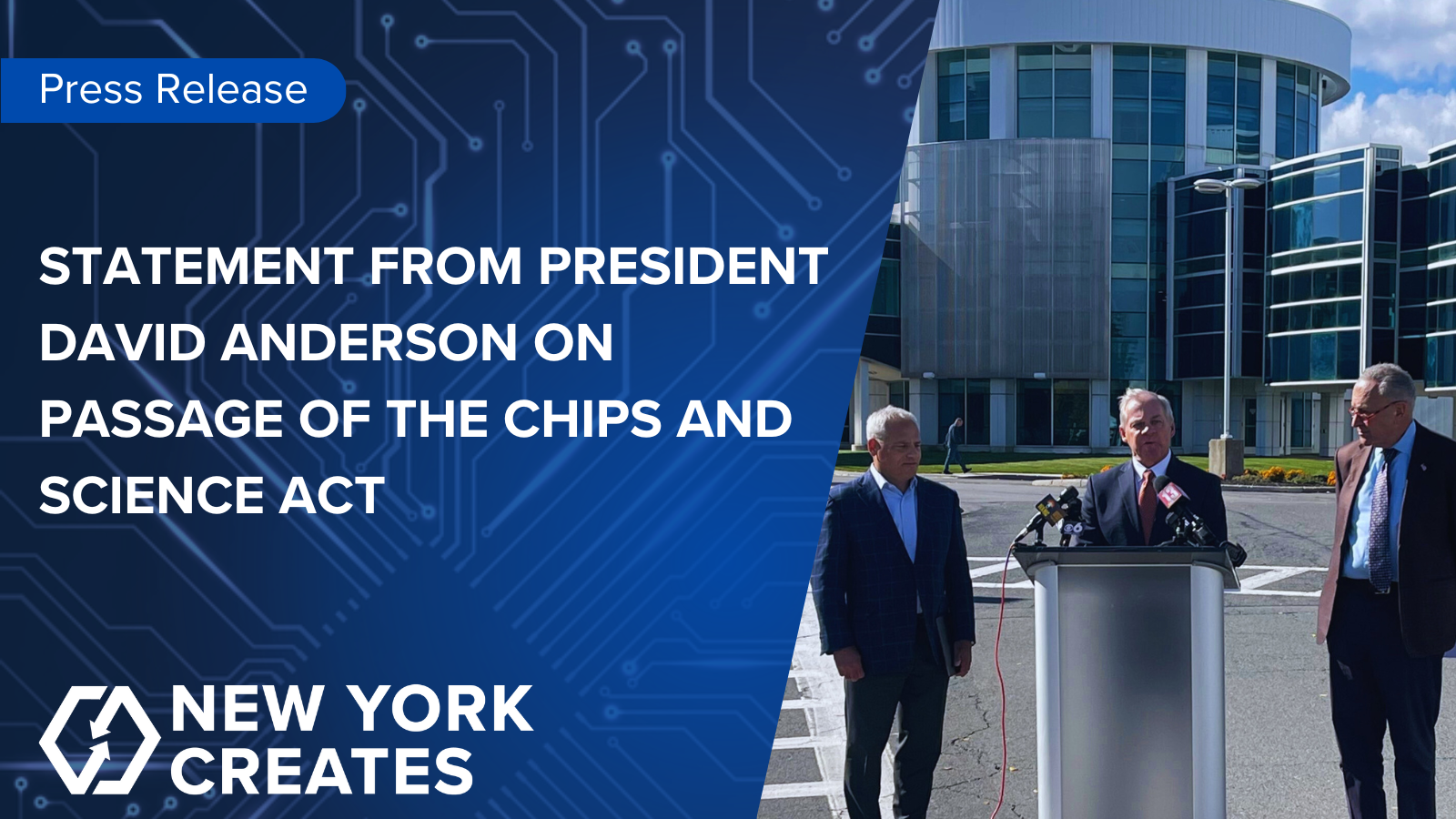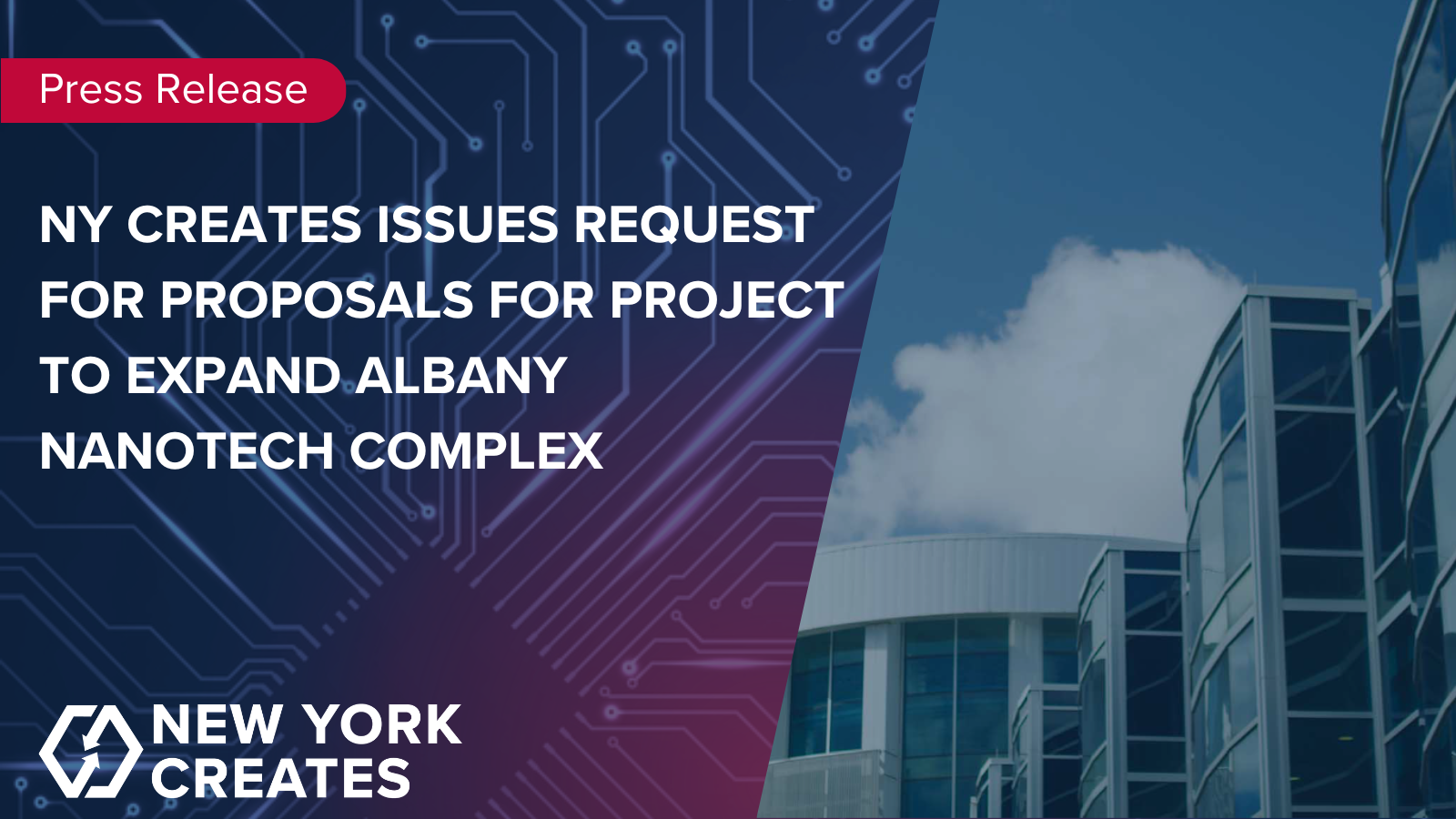For Immediate Release: Thursday, May 4, 2023
Contact: Jason Conwall | jc******@ny********.org | (518) 956-7373
The New York Center for Research, Economic Advancement, Science, Technology and Engineering (NY CREATES) and the Israel Innovation Authority recently signed an agreement to promote collaboration and partnership between the two organizations in the field of technological innovation. The agreement was signed at the conclusion of a New York trade mission to Israel, led by Empire State Development’s Global NY division, during which NY CREATES and New York companies met with prospective Israeli customers and business partners. As part of the agreement, NY CREATES seeks to connect with Israeli innovation and research entities in the field of semiconductors.
“Collaboration is critical to innovation, which is why we are excited about our new partnership with the Israel Innovation Authority as we will work together on research and development to advance semiconductor technologies,” said David Anderson, President, NY CREATES. “Israel has many promising early-stage companies with inventive new ideas, and NY CREATES has the world-class facilities and expertise to help transform those ideas into new technologies with real-world applications. We look forward to our partnership and working together to grow companies and new technologies, expand markets, and strengthen the semiconductor industry here at home and globally.”
“On the backdrop of a global semiconductors’ supply chain crisis, and the US government backwind for investments within this specific sector, the Israel Innovation Authority identified this specific opportunity to collaborate with a leading semiconductor R&D entity,” said Dror Bin, CEO, Israel Innovation Authority. “This agreement will enable Israeli semiconductor companies to operate in some of the most advanced facilities worldwide, and gain better exposure to the US market and other relevant global entities.”
The new agreement establishes a partnership that offers a unique framework for technological cooperation and piloting between US entities and innovative Israeli companies and research facilities. As part of the agreement, the Israel Innovation Authority will support NY CREATES in identifying technological developments and scouting Israeli companies that fall within its sphere of activity. The Israel Innovation Authority will provide funding for the Israeli companies, while NY CREATES will support the US component of the collaboration by providing access to its world-leading facilities for R&D and prototyping – the Albany NanoTech Complex – as well as scientists and researchers. NY CREATES has an established history of serving as a commercialization facilitator in advanced digital, analog and power technologies and helps to accelerate the growth of high-value, high-technology companies.
Empire State Development President, CEO and Commissioner Hope Knight said, “Providing opportunities for international trade is an important part of ensuring New York businesses succeed now and into the future, especially in key industries such as semiconductors. I am pleased that NY CREATES and the Israel Innovation Authority will work together to keep New York State at the forefront of research and development and create economic opportunities throughout state.”
Shlomi Kofman, VP & Head of International Collaboration Division at the Israel Innovation Authority said, “The Innovation Authority is pleased to announce the signing of this collaboration agreement with the NY-based commercialization center, NY CREATES in the field of semiconductors, considering the unique opportunity it provides Israeli R&D companies in the field of semiconductors. We will continue our global activities with the aim of opening new markets for Israeli companies and academia thus ensure Israel’s continued technological leadership despite the challenging global semiconductor situation.”
About NY CREATES
NY CREATES serves as New York’s bridge to the advanced electronics industry. As the primary resource for fostering public-private and academic partnerships in New York State, NY CREATES attracts and leads industry-connected innovation and commercialization projects that secure significant investment, advance R&D in emerging technologies, and generate the jobs of tomorrow. NY CREATES runs some of the most advanced facilities in the world, boasts more than 2,700 industry experts and faculty, and manages public and private investments of more than $20 billion – placing it at the global epicenter of high-tech innovation and commercialization. Learn more at ny-creates.org.
About Israel Innovation Authority
Fueled by a vibrant entrepreneurial culture, robust technological infrastructure and highly skilled human workforce that produces the most substantial number of startups per capita in the world, innovation is one of Israel’s most valuable natural resources. At the same time, Israel is today home to over 350 R&D centers of multinational corporations, many of them Fortune 500 companies, illustrating Israel’s profound and disproportionate impact on the advancement of global innovation as well.
The Israel Innovation Authority, an independent publicly funded agency, was created to provide a variety of practical tools and funding platforms aimed at effectively addressing the dynamic and changing needs of the local and international innovation ecosystems. This includes early-stage entrepreneurs, mature companies developing new products or manufacturing processes, academic groups seeking to transfer their ideas to the market, global corporations interested in collaborating with Israeli technology, Israeli companies seeking new markets abroad and traditional factories and plants seeking to incorporate innovative and advanced manufacturing into their businesses.
About Empire State Development
Empire State Development (ESD) is New York’s chief economic development agency. The mission of ESD is to promote a vigorous and growing economy, encourage the creation of new job and economic opportunities, increase revenues to the State and its municipalities, and achieve stable and diversified local economies. Through the use of loans, grants, tax credits and other forms of financial assistance, ESD strives to enhance private business investment and growth to spur job creation and support prosperous communities across New York State. ESD is also the primary administrative agency overseeing the New York State Regional Economic Development Councils and the marketing of “I LOVE NY,” the State’s iconic tourism brand. For more information on Regional Councils and Empire State Development, please visit www.regionalcouncils.ny.gov and www.esd.ny.gov
###




